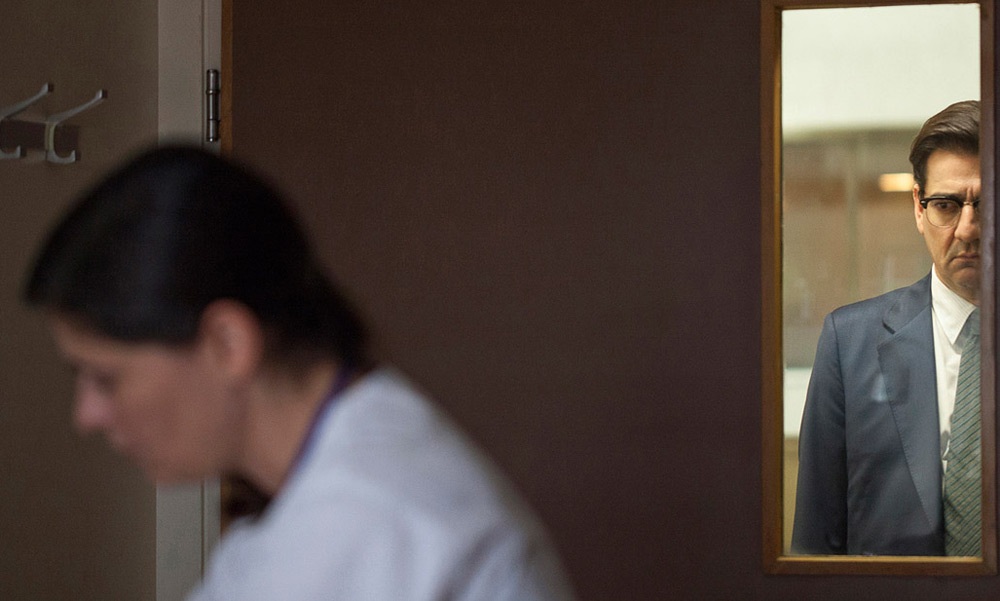At one point in “Pity,” the lead character of the film, a lawyer who is never named, speaks admiringly of a film he just saw, not really knowing what else to say while playing cards with his father’s friends. His wife lies in the hospital comatose, so it would seem he needs the distraction, but he found real comfort in the tragic story of a boxer who leaves his children without a father and was amazed at how realistic those kids could cry. He should know at this point, waking up every morning to bawl uncontrollably, but you can sense he actually takes pride in offering an expert opinion on being able to tell real tears from fake ones, embracing the role that has led others to actually take an interest in what he has to say and the neighbor downstairs to bring him orange cake on the reg.

Yet as much distance as Makridis places between the audience and the lawyer, small eccentricities shown by both his protagonist and those around him that pierce the veneer of polite society begin to work their way into the film, drawing you closer as the lawyer increasingly abuses his status as a would-be widower. As a director, Makridis is less overtly abrasive or confrontational in his cultural critique than Lanthimos, but feels no less dangerous, with every exchange between the lawyer and another human being a risk of death by embarrassment, and cinematographer Konstantinos Koukoulios’ unforgiving compositions never letting the audience forget as the lawyer lumbers around the airy Greek Isles in search of a compassionate ear that he is trapped by the contours of the screen.
“Pity” is a delightfully nasty piece of work, refusing to let either the lawyer or the audience off the hook as Makridis keenly observes how expressing sympathy has become ritualized to the point it no longer has meaning, providing more comfort to the person giving it than receiving it, while the absence of those gestures, however empty they may be, can inspire more concern than what led to the gesture in the first place. Yannis Drakopoulos’ well-moderated performance as the lawyer opens up the film as it wears on, as much as you want to recoil from him, and in finding yourself giving him the empathy he craves, you realize you might be part of the problem, a truly dark thought that Makridis has the rare gift of being able to make you laugh at.
“Pity” will show at the Sundance Film Festival on January 20th at 6 pm at the Tower Theater in Salt Lake City, and in Park City on January 22nd at 9 a.m. at the Temple Theater, January 25th at 10 p.m. at the Holiday 4 and January 26th at 1 p.m. at the Redstone 2.




